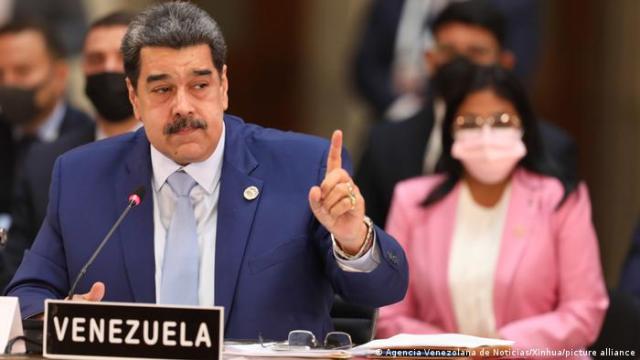
México is presenting itself as the new champion of Latin American integration. To do that, it appears willing to embrace the continent’s isolated autocratic leftist leaders. But it’s a risky move.
By DW
Sep 21, 2021
The recent summit of the Community of Latin American and Caribbean States (CELAC) in México was the first big meeting of its kind since the start of the coronavirus pandemic. Participants ranged from Cuban head of state Miguel Diaz-Canel to Ecuador’s laissez-faire conservative president, Guillermo Lasso. Even Venezuelan leader Nicolás Maduro made a last-minute appearance – though he is wanted by the United States on charges of drug trafficking, with a $15 million (€12.8 million) reward for information leading to his arrest.
Yet, in many ways Maduro’s flying visit to the CELAC summit was not so surprising. The continent’s authoritarian leftist states, which include Venezuela, Cuba and Nicaragua, are beset by economic sanctions and damning UN reports on human rights violations, and their leaders are looking to México for support.
Mexican President Andrés Manuel López Obrador has proposed replacing the Organization of American States (OAS) with CELAC, a body that does not include the United States or Canada. His motion came in response to demands from countries such as Nicaragua, Venezuela and Bolivia, which have called the OAS an interventionist tool of the US.
What are México’s motives?
Political analysts have said the Mexican government is signaling its discontent with the OAS’s agenda, ending its two-year CELAC presidency with a bang. Most of López Obrador’s term has been characterized by reserved and integrationist diplomacy, concentrating on concrete projects like acquiring COVID vaccines rather than on ideological differences, which threatened to split the alliance.
This strategy has not been completely successful. Brazil’s Jair Bolsonaro pulled out of CELAC in January 2020, and the alliance lost its biggest and most-populous member. And even during the summit itself, there were tensions and fierce verbal clashes between Argentina and Nicaragua and Uruguay and Cuba, which had to be smoothed over by México’s Foreign Secretary Marcelo Ebrard.
“This summit has increased the pressure to reform the OAS,” said Jose Antonio Crespo, a historian and political scientist at México’s Center for Research and Teaching in Economics (CIDE). He doesn’t rule out the idea that it’s a maneuver engineered by Ebrard to raise his profile as a potential contender in México’s next presidential election, in 2024.
The foreign secretary is said to be very keen to become López Obrador’s successor – and he can count on the president’s support. Both men have been critical of the OAS; Crespo said that for many Latin American left-wingers, López Obrador is a substitute figure for the late Venezuelan President Hugo Chávez, who died in 2013.
…
Read More: DW – México finds a Latin American ally in Venezuela’s Maduro
…

